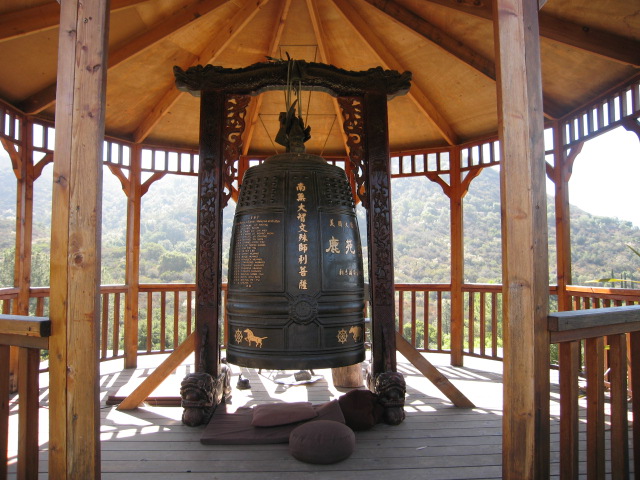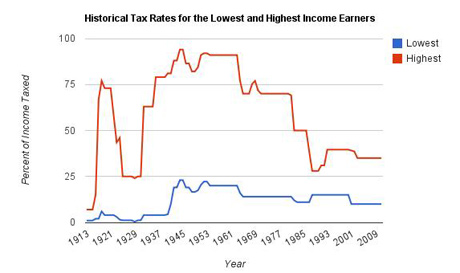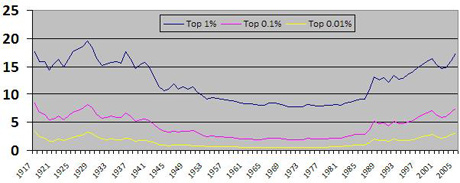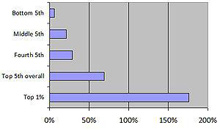
Monday, November 28, 2011
Coaxing the Bell to Ring

Sunday, April 3, 2011
Knowledge with no action is pointless.
"Success seems to be connected with action. Successful people keep moving. They make mistakes, but they don't quit."
- Conrad Hilton
Friday, April 1, 2011
Compassion is an Answer
Bill Gross: Great ideas for finding new energy
Uploaded by TEDtalksDirector on Feb 2, 2009
http://www.ted.com Bill Gross, the founder of Idealab, talks about his life as an inventor, starting with his high-school company selling solar energy plans and kits. Learn here about a groundbreaking system for solar cells -- and some questions we haven't yet solved.
TEDTalks is a daily video podcast of the best talks and performances from the TED Conference, where the world's leading thinkers and doers give the talk of their lives in 18 minutes. Featured speakers have included Al Gore on climate change, Philippe Starck on design, Jill Bolte Taylor on observing her own stroke, Nicholas Negroponte on One Laptop per Child, Jane Goodall on chimpanzees, and "Lost" producer JJ Abrams on the allure of mystery. TED stands for Technology, Entertainment, Design, and TEDTalks cover these topics as well as science, business, development and the arts. Watch the Top 10 TEDTalks on TED.com, at http://www.ted.com/index.php/talks/top10
Category:
Thursday, March 31, 2011
Why Facebook provides good visibility:
Facebook is HUGE! Over 520,000,000 users worldwide.
What's even more amazing is that Facebook users spend an incredible 700,000,000,000 ( 700 Billion) minutes on Facebook every month!
Thursday, March 17, 2011
Beauty is in the eye of the beholder.

Read more: http://www.sfgate.com/cgi-bin/blogs/pets/detail?entry_id=85068#ixzz1GqCC92WE
How the Rich Soaked the Rest of Us | Common Dreams
How the Rich Soaked the Rest of Us
The astonishing story of the last few decades is a massive redistribution of wealth, as the rich have shifted the tax burden
Over the last half century, the richest Americans have shifted the burden of the federal individual income tax off themselves and onto everybody else. The three convenient and accurate Wikipedia graphs below show the details. The first graph compares the official tax rates paid by the top and bottom income earners. Note especially that from the end of the second world war into the early 1960s, the highest income earners paid a tax rate over 90% for many years. Today, the top earners pay a rate of only 35%. Note also how the gap between the rates paid by the richest and the poorest has narrowed. If we take into account the many loopholes the rich can and do use far more than the poor, the gap narrows even more. When the Cadillac Eldorado made its debut in the 1950s, wealthy Americans were paying a top rate of tax of 90%; today, the top rate of tax is 35%.
When the Cadillac Eldorado made its debut in the 1950s, wealthy Americans were paying a top rate of tax of 90%; today, the top rate of tax is 35%.
One conclusion is clear and obvious: the richest Americans have dramatically lowered their income tax burden since 1945, both absolutely and relative to the tax burdens of the middle income groups and the poor.
Consider two further points based on this graph: first, if the highest income earners today were required to pay the same rate that they paid for many years after 1945, the federal government would need far lower deficits to support the private economy through its current crisis; and second, those tax-the-rich years after 1945 experienced far lower unemployment and far faster economic growth than we have had for years.
 Historical tax rates for the highest and lowest income earners
Historical tax rates for the highest and lowest income earners
The lower taxes the rich got for themselves are one reason why they have become so much richer over the last half century. Just as their tax rates started to come down from their 1960s heights, so their shares of the total national income began their rise. As the two other Wikipedia graphs below show, we have now returned to the extreme inequality of income that characterised the US a century ago.
The graph above shows the portion/percentage of total national income taken by the top 1%, the top tenth of a percent, and the top 100th of a percent of individuals and families: the richest of the rich. The third graph compares what happened to the after-tax household incomes of Americans from 1979 to 2005 (adjusted for inflation). The bottom fifth of poorest citizens saw their income barely rise at all. The middle fifth of income earners saw their after-tax household income rise by less than 25%. Meanwhile, the top 1 % of households saw their after-tax household incomes rise by 175%.
In simplest terms, the richest Americans have done by far the best over the last 30 years, they are more able to pay taxes today than they have been in many decades, and they are more able to pay than other Americans by a far wider margin. At a time of national economic crisis, especially, they can and should contribute far more in taxes.
Instead, a rather vicious cycle has been at work for years. Reduced taxes on the rich leave them with more money to influence politicians and politics. Their influence wins them further tax reductions, which gives them still more money to put to political use. When the loss of tax revenue from the rich worsens already strained government budgets, the rich press politicians to cut public services and government jobs and not even debate a return to the higher taxes the rich used to pay. So it goes – from Washington, to Wisconsin, to New York City.
 Share of national income taken by top tranches of earners
Share of national income taken by top tranches of earners
How do the rich justify and excuse this record? They claim that they can invest the money they save from taxes and thereby create jobs, etc. But do they? In fact, cutting rich people's taxes is often very bad for the rest of us (beyond the worsening inequality and hobbled government it produces).
Several examples show this. First, a good part of the money the rich save from taxes is then lent by them to the government (in the form of buying US Treasury securities for their personal investment portfolios). It would obviously be better for the government to tax the rich to maintain its expenditures, and thereby avoid deficits and debts. Then the government would not need to tax the rest of us to pay interest on those debts to the rich.
Second, the richest Americans take the money they save from taxes and invest big parts of it in China, India and elsewhere. That often produces more jobs over there, fewer jobs here, and more imports of goods produced abroad. US dollars flow out to pay for those imports and so accumulate in the hands of foreign banks and foreign governments. They, in turn, lend from that wealth to the US government because it does not tax our rich, and so we get taxed to pay for the interest Washington has to give those foreign banks and governments. The largest single recipient of such interest payments today is the People's Republic of China.
Third, the richest Americans take the money they don't pay in taxes and invest it in hedge funds and with stockbrokers to make profitable investments. These days, that often means speculating in oil and food, which drives up their prices, undermines economic recovery for the mass of Americans, and produces acute suffering around the globe. Those hedge funds and brokers likewise use part of the money rich people save from taxes to speculate in the US stock markets. That has recently driven stock prices higher: hence, the stock market recovery. And that mostly helps – you guessed it – the richest Americans who own most of the stocks.
 Relative increases in net household incomes of Americans from 1979 to 2005
Relative increases in net household incomes of Americans from 1979 to 2005
The one kind of significant wealth average Americans own, if they own any, is their individual home. And home values remain deeply depressed: no recovery there.
Cutting the taxes on the rich in no way guarantees social benefits from what they may choose to do with their money. Indeed, their choices can worsen economic conditions for the mass of people. These days, that is exactly what they are doing.
Richard D Wolff is professor of economics emeritus at the University of Massachusetts, Amherst, where he taught economics from 1973 to 2008. He is currently a visiting professor in the graduate program in international affairs of the New School University, New York City. Richard also teaches classes regularly at the Brecht Forum in Manhattan. His most recent book is Capitalism Hits the Fan: The Global Economic Meltdown and What to Do About It (2009). A full archive of Richard's work, including videos and podcasts, can be found on his site
The Story of Citizens United v. FEC (2011)
It is OK to discuss Great Earthquakes and resulting Tsunamis
"Great minds discuss ideas; Average minds discuss events; Small minds discuss people."
- Eleanor Roosevelt
Tsunami in Japan [HD] 3.11 first person FULL raw footage
Japan Moves -- a trip to Japan (2010 March)
Wednesday, March 16, 2011
Quotes
One of them is not reading them.
~ Joseph Brodsky ~
A room without books is like a body without a soul.
~Cicero~
Never judge a book by its movie.
~J.W. Eagan~
Reading is to the mind what exercise is to the body.
~Sir Richard Steele~
Where is human nature so weak as in the bookstore?
~ Henry Ward Beecher ~
A wonderful thing about a book, in contrast to a computer screen, is that you can take it to bed with you.
~ Daniel J. Boorstin ~
I have always imagined that Paradise will be a kind of library.
~Jorge Luis Borges~
When I got [my] library card, that was when my life began.
~ Rita Mae Brown ~
A good book is the purest essence of a human soul.
~ Thomas Carlyle ~
A book is like a garden carried in the pocket.
~ Chinese proverb ~
The person who deserves most pity is a lonesome one on a rainy day who doesn't know how to read.
~ Benjamin Franklin ~
Until I feared I would lose it, I never loved to read.One does not love breathing.
~ Harper Lee ~
For books are more than books, they are the life,
the very heart and core of ages past,
the reason why men lived and worked and died, the essence and quintessence of their lives.
~ Amy Lowell ~
Outside a dog, a book is man's best friend.
Inside a dog, it's too dark to read.
~Groucho Marx~
A library is thought in cold storage.
~ Herbert Samuel ~
The more that you read,
the more things you will know.
The more that you learn,
the more places you'll go.
~ Dr. Seuss ~
Books are the treasured wealth of the world
and the fit inheritance of generations and nations.
~ Henry David Thoreau ~